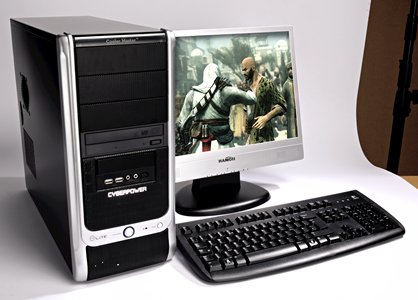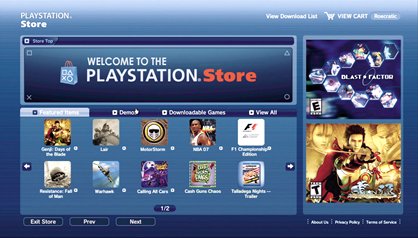Why Xbox Live isn't free
We take a closer look at Live and ask: what is it we're paying for?
The Competition
PC
PC gaming has been free or ad-supported for a long time. EA runs Battlefield servers quite happily without a charge, and services like GameSpy handle matchmaking for hundreds of games with ad support and an optional subscription charge.
Most recently, the online Steam store launched back in 2003 as a means to deliver Valve’s games to their customers; it has grown and filled its virtual shelves with stock from the likes of Rockstar, Sega and Capcom, and in September last year, spawned the Steam Community.

With 15 million users, it dwarfs Xbox Live, and with a unified Friends list, superior online store, and chat and community functions all offered at no cost to gamers, it makes a mockery of Microsoft’s Live service on both PC and 360. Just as Steam is free to gamers, so Steamworks - a set of free tools allowing developers to incorporate anti-piracy, auto-updating and community functions into their games at no cost - is free to developers. The PC already has matchmaking services like GameSpy, but Steamworks is Valve’s move to standardise features across the PC gaming space and has the potential to unify PC gamers through the Steam platform at no charge to developer or gamer.
PlayStation 3
While a dedicated CoD4 player will spend hard-earned money every year for his games on Live, a similarly dedicated player on the PlayStation Network will pay nothing for a service of comparable quality. We can argue over which platform has the better games line-up until we’re all very old and dead, but it’s impossible to dispute who gets the cheaper deal when it comes to playing the same games online. And though Live currently trumps the PSN with its unified Friends list which allows players to connect and chat to Friends in different games, the PlayStation 3 will be updated to include its own cross-game unified Friends list before the end of 2008. Sony’s announcement at January’s CES threatens to place the PlayStation Network on a par with Live, all at no cost to the end user. Like Live, players will be able to send messages and chat with Friends in other games, though thanks to PSN’s more open structure, some third party developers may still insist upon using their own system.
Sign up to the GamesRadar+ Newsletter
Weekly digests, tales from the communities you love, and more

Konami’s recent Metal Gear Online Beta debacle demonstrates why Live’s unified system is better for gamers, but a few months down the line MGO has proved to be mostly stable and entirely free, while Gears of War 2 still costs 360 owners their pocket money for their nightly games.
Wii
The Nintendo Wii lags behind, with no unified Friends list, no voice chat in most games and only rare online support, but it does have a very rich online shop, and currently offers its online gaming at no charge. Though Nintendo is set to charge for certain games later this year, damn them.

Still, the two big games, Mario Kart Wii and Super Smash Bros Brawl work quite nicely online without taking a penny from your pocket, and their dashboard offers local news, weather at the click of a button and dedicated channels for daily votes and comparing your Mii avatars. Nintendo’s online service offers some neat tricks, but it remains hampered by their ultra family-friendly policy.


